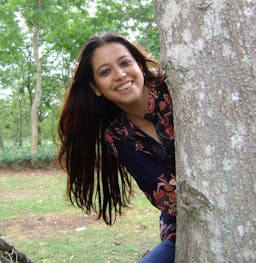Gender inequality: Ex-ULFA female cadres living in difficult conditions in Lakhimpur, Assam, India
Apr 28, 2022
Story
Gender inequality is existing everywhere in India and it is felt in the most unusual situations and circumstances. One such area is militancy where women cadres are often found subjected to gender discrimination. In Assam the surrendered militants who have returned to the mainstream enjoy numerous “benefits” under various governmental schemes. But this is true to the male cadres only. Their female ex-comrades who were the sisters-in-arms in their organization are now left to the oblivion—leading a life of neglect, social exclusion and economic hardships. The female surrendered cadres of the ULFA (The United Liberation Front of Assam, which have been waging an armed insurgency in Assam against the Indian state for political separation since 1979) in Assam are nowhere getting any benefit from the government schemes meant for rehabilitation of ex-militants after returning to the mainstream. I met some of the female ex-cadres of the ULFA in Lakhimpur district who are now living a life of poverty, neglect and social exclusion unnoticed by the media.
First of the ex-sisters-in-arms that I met was one Rekha Deori (name changed) in her village home under Bihpuria Revenue Circle of Lakhimpur district. Rekha joined the ULFA in her teens in late 1980s in search of her missing uncle and became an armed cadre of the outfit. Fondly called Panimala by the senior leaders in the training camps for her tender age, Rekha became an important part of the insurgent organization. She spent three years in the jungles of Lakhipatahr as an active cadre till Operation Bajrang. Rekha left the outfit and surrendered before the Lakhimpur district authorities following continuous harassment of her family members by the security forces. After her surrender the state government provided her a Photostat machine to earn a living under the ex-militant rehabilitation scheme. However that machine proved to be a useless stuff as she lived in a remote village. While most of Rekha’s ex-male brothers-in-arms are enjoying the benefits offered by the state to the surrendered militants, she has been living a life of economic hardship, social exclusion and loss of dignity since then. Presently she is working as teacher in a venture L.P. school without any honorium hoping for a better and dignified return to the mainstream life. However despite all the hardships and humiliation Rekha is reluctant to share information about her past life as an armed cadre of ULFA and the subsequent ordeal after her surrender. She is still battling for a normal life where she was never been proposed for marriage due to the prevailing social stigma which is gender biased. The prevailing gender insensitivity in the society and equally biased stand by the state and by the authorities have made Rekha a victim from all the sides—earning acrimony as being a SULFA (Surrendered ULFA), as these ex-militants enjoy a better off life of opportunities and leverage, and most importantly the stigma of being an ex-female member of an armed insurgent group.
After Rekha I met one more ex-female member of ULFA who is leading a life of abject poverty and deprivation in a nearby village. She is Deepali Saikia who left the outfit during the post-Bajrang period in the early 1990s. Deepali is married to a landless peasant who earns living as daily wage labourer in their village near Dhunagurighat of Lakhimpur district. Deepali too, is not benefited by any governmental rehabilitation schemes meant for ex-militants. An anemic, malnourished and meagerly feed Deepali recently had a miscarriage because of poor health and living conditions. Various healthcare programmes for rural women also failed to reach this poor ex-cadre who remains silent for her miserable life fearing backlash from the society and police atrocities on her husband.
Another ex-cadre of the ULFA that I met in Lakhimpur district is Ruby Bhuyan alias Mami. She is a widow—her husband Ajit Saikia, a high ranked ULFA militant was killed by the security forces in Majuli in November, last year. Originally hailing from Darrang district Ruby now lives with her in-laws in Sandahkhowa village of Lakhimpur district with two of her young children. Her account of the life of female cadres in ULFA during action and after return is altogether different. She was with the ULFA’s GHQ in its Bhutan camp where she got married with fellow comrade Ajit Saikia. Ruby returned home during the Operation All Clear pregnant with her second child. After her return to home, while her husband still remained with the outfit, Ruby tried to earn a living for her and her two young children by working as an insurance agent. After the killing of her husband Ruby joined her in-laws in Lakhimpur district and living there since less than a year. She now lives with her brother-in-law and his family who are peasants. Ruby told me that there was no gender discrimination in ULFA so far as its female cadres were concerned. Though she has not surrendered officially, Ruby is neither in touch with the ULFA nor with any state government agencies providing rehabilitation schemes to ex-militants.
This is what found as to be the present fate of the female ex-cadres of the ULFA in Lakhimpur district due to a gender-biased policy by the state and a patriarchal society. (To be continued)
Link:
http://www.assamtribune.com/scripts/showpage.asp?id=jul0913,8,255,1728,1...




